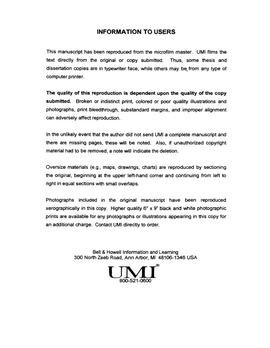| dc.contributor.advisor | Gaddie, Ronald Keith, | en_US |
| dc.contributor.author | Buchanan, Scott Eugene. | en_US |
| dc.date.accessioned | 2013-08-16T12:30:43Z | |
| dc.date.available | 2013-08-16T12:30:43Z | |
| dc.date.issued | 1999 | en_US |
| dc.identifier.uri | https://hdl.handle.net/11244/5865 | |
| dc.description.abstract | By studying the phenomenon of racial threat voting in the South, we make discoveries that allow us to understand better the complexities of it. By viewing racial threat on different planes, we gain a better understanding of how racial threat affects white voters in the South. If racial threat does exist in ways besides simple physical proximity, then racial threat may influence white voters elsewhere, potentially making this problem a national phenomenon instead of a strictly regional one. | en_US |
| dc.description.abstract | This dissertation examines the continuing role that race plays in the politics of the American South. The focus of this study is the concept of racial threat voting, which argues that certain conditions conspire that cause white voters to feel "threatened" by black voters and black populations. Most of the prior literature on the topic of racial threat voting focuses on geographic proximity to large black populations. In this dissertation, we examine racial threat voting in three dimensions: physical proximity, culture, and the media. We also explore the role of racial threat in Republican Party success. By studying racial threat in this manner, we gain a greater conceptualization of the phenomenon. To study racial threat voting, the dissertation examines selected gubernatorial campaigns in Georgia, Louisiana, and South Carolina in a period from 1994--1998. | en_US |
| dc.description.abstract | Two major findings emerge from this study. First, racial threat occurred at varying levels across the three states. Second, political context is vital to the existence of racial threat voting. Without the proper political environment and candidates, racial threat voting did not occur. Claims that racial threat voting always exists in southern elections are unfounded. This requirement of political context also makes it unlikely that the Republican Party can forge a durable realignment solely on race. Whites with negative racial attitudes are already predisposed to vote for the GOP. Republican candidates who try to appeal to these racially threatened whites and other groups simultaneously face a difficult prospect. | en_US |
| dc.format.extent | xi, 300 leaves : | en_US |
| dc.subject | History, United States. | en_US |
| dc.subject | Southern States Race relations Political aspects. | en_US |
| dc.subject | Sociology, Ethnic and Racial Studies. | en_US |
| dc.subject | Georgia Race relations Political aspects. | en_US |
| dc.subject | South Carolina Race relations Political aspects. | en_US |
| dc.subject | Political Science, General. | en_US |
| dc.subject | Louisiana Race relations Political aspects. | en_US |
| dc.title | Perspectives on the racial threat hypothesis: Testing a theory of southern politics. | en_US |
| dc.type | Thesis | en_US |
| dc.thesis.degree | Ph.D. | en_US |
| dc.thesis.degreeDiscipline | Department of Political Science | en_US |
| dc.note | Chair: Ronald Keith Gaddie. | en_US |
| dc.note | Source: Dissertation Abstracts International, Volume: 60-11, Section: A, page: 4161. | en_US |
| ou.identifier | (UMI)AAI9949691 | en_US |
| ou.group | College of Arts and Sciences::Department of Political Science | |
